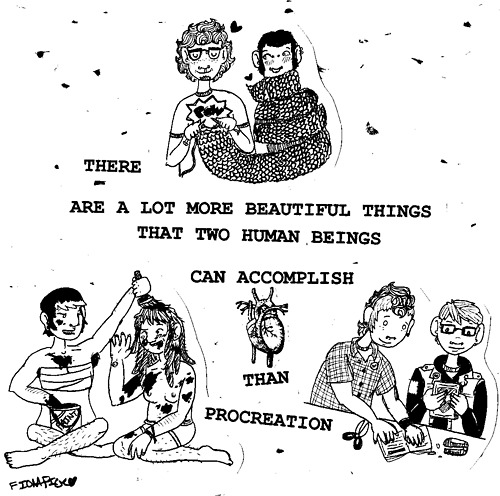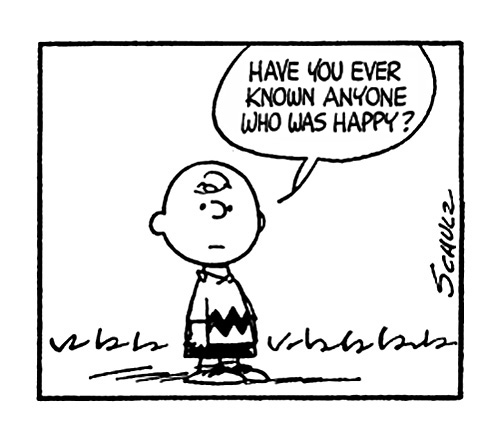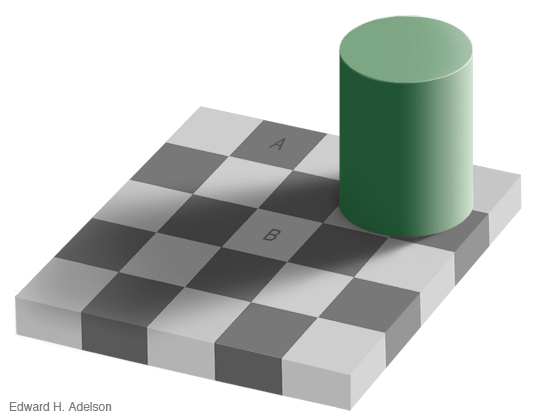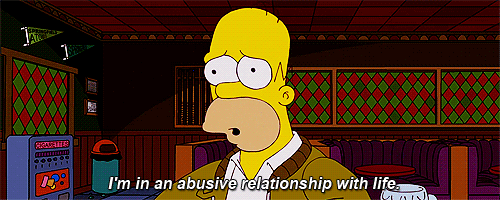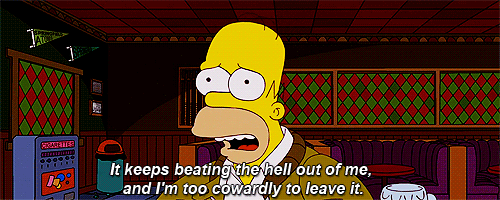Astute followers of links from this blog might have noted that I carry on a number of…curious activities on the side. I write, commission, and publish a webcomic called the Tales of Gnosis College, an interconnected set of stories set at an eponymous (but fictional) liberal arts college where the reckless, overssexed studentry is seen as a convenient source of experiment fodder for the many mad scientists on the faculty. Needless to say, the resulting visual narrative is decidedly adults-only. I also commission a lot of art in the theme of “erotic mad science,” which I publish at a different section of the same site as the comic. All of this creation is available to the world for free under Creative Commons licenses, so it is free to spread throughout the world. This enterprise makes me a very odd duck, a pro bono fetish pornographer.*
Why am I engaged in this costly, time-consuming, and socially-unacceptable hobby? One of my earlier attempts at self-explanation, my Thaumatophile Manifesto, focused on autobiography. it was an account of what I had been through and how I came to embrace my own inner weirdness. But the work I am doing is connected to larger concerns, and curiously, it is linked to the philosophical stance taken as a result of my revulsion to human suffering, the same stance that motivates my writing this specialty blog.
I shall begin with myself and move outward in my explanation.
I need pallatives. It might seem obvious that I don’t like my life very much. As I explained recently, I don’t regard suicide as an appropriate or feasible response for me (in the near-term, anyway) to that ugly fact. It would have been better for me not to have been born, but I was and here I am. Looking at the actuarial tables suggests a few more decades in front of me at least, so if I don’t want to suffer to much in that time I need to find something to do with myself. And doing that means finding palliatives, uses for resources that while they might meet with social disapproval, will at least distract me enough to diminish the pain of existing.
The effect of getting older have broken many former palliatives. Food and alcohol used to serve admirably here, but unfortunately as I got older I began to develop some health conditions (diagnosed, ironically, very shortly after my premature boast of good health) which, if left unchecked, would make me very sick in short order. I suppose that it would have been an option to just let my vices consume me and shorten my suffering that way — perhaps that is just what some people are doing — but on reflection that seemed like a bad idea. The considerations that weigh against fast suicide also weigh against slow suicide, and what is more, the shortening of suffering would be purchased at the price of magnifying its intensity. The sorts of things that make you sick enough to die from will make you very miserable before you die, generally.
So I gave up my palliatives and took up an abstemious regimen instead. It “worked” and I am now regarded as being in “excellent health.” It is a pity for me that my hedonic condition does not match what doctors can measure. And I now also look forward again to decades that won’t be good for me, as they will continue to be abstemious.
When I was younger scholarly pursuits were an absorbing way to spend time and feel better, but the effects have age have dimmed the value of these as well. Scholarship, if you’re going to do it for real, demands of its acolytes immense amounts of time and energy. I don’t have these any more. Getting older diminishes your energy, and it also usually means — it does in my case — assuming quotidian obligations that mean you don’t have much time, either. (Developing presbyopia, also an effect of advancing age, also makes the sort of library-labor involved in scholarship more of a physical strain than it used to be as well.) So that’s out.
But one thing that hasn’t gone away is good old lust, and stoking and slaking that can focus one’s attention for rather a long time. Since I don’t have that much hope of doing this in partnered (or group?) contexts, partly as a result of my weirdness, partly due to my lousy personality, and partly due to the ugly Hobbesian logic that dominates romantic pursuits, writing scenes in my head and then realizing them in data and pixels turns out to be the most efficient (not to say the most hygienic!) way of achieving this end. Being your own pornographer turns out to be an excellent palliative.
So much for relieving my own suffering. Do I relieve the suffering of others? There is no doubt in my mind that I do.
However strange you are, you are not alone. There are doubtless other people — I have met many of them online — who like what I do and who get a measure of diversion in their own lives from reading it. (Others do not, of course, but they have the option of simply surfing for things elsewhere.) That helps relieve their suffering. Good. There is a first-order effect here in that they can, how to put this delicately? retire to their chambers and relieve certain pressures. Possibly more important still is a second order effect (for those who share my fetish) of just knowing that they are not alone. Ugly stereotypes of masturbators in their basements aside, porn at this level actually connects peole who share common interests (here, in mad science tropes, but the examples could be multiplied ten-thousand fold). I have argued before at length that specialized porn is an inducement to association and friendship. It certainly has been so in my own life. Friendship and solidarity among us freaks reduces our suffering.
Antinatalist effects. Encouraging people to get get their freak flags up and flying also helps to divert their erotic energies out of procreative activities, perhaps out of partnered sexuality altogether. It certainly makes them take control of their erotic destinies. To the extent that it does so, it helps discourage procreation — and thus, the creation of new loci of suffering in the form of new people — in the best possible way, which is by giving people an alternative to making new people which they will enjoy more than that.
Observation. Romantic involvement is negative-sum. Any satisfaction you might take in finding a partner is counterbalanced by the agony of defeated rivals for that partner. Resources used up in the struggle for attention are just wasted. If you pursue love, you will be trapped between the hammer of a collective action problem and the anvil of search costs. But pro-bono porn distributed over the Internet is an almost-pure case of a non-rival good; one person’s enjoyment thereof does not detract from any other persons’. Positive sum as well as a reduction of suffering!
Another observation. There is a certain deep satisfaction in taking the brain mechanisms installed in us by our non-friend natural selection that are there because they perpetrated procreation (and thereby keep the suffering going on and on) and cleverly hijacking them to reduce suffering. That’s something that porn does, and dong it feels like a revolutionary act.
To the extent that I am capable of being proud of anything, it’s being a pro-bono pornographer.
—
*Rather less altruistically, I do a fair amount of porny tumblring, both of my mainstream erotic mad science, a more disturbing variant thereof, and generic imagery, much of it adults-only, that makes me happy. My time and effort of selection is a donation to the world, at least. Back to main text.

